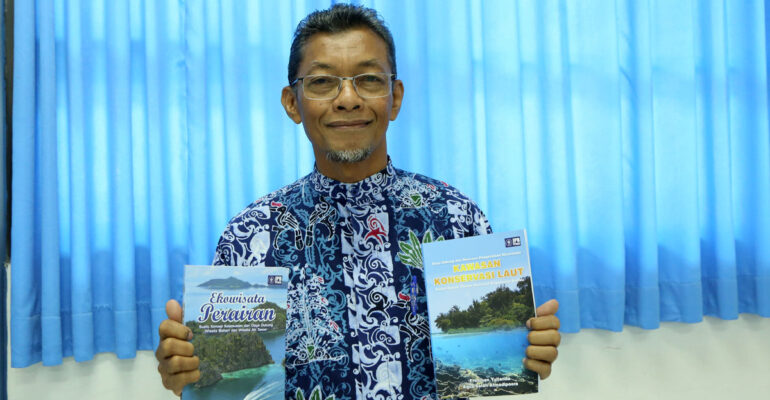Lecturer of FPIK IPB University Launches Aquatic Ecotourism Book

Dr. Ir Fredinan Yulianda, lecturer at the Department of Water Resources Management, Faculty of Fisheries and Marine Sciences (FPIK) IPB University launched a book entitled “Aquatic Ecotourism: A Concept of Conformity and Supporting Capacity of Maritime Tourism and Freshwater Tourism”. In the launch of the book Aquatic Ecotourism that was held by students of the Postgraduate Study Program in Coastal and Ocean Resources Management in the FPIK Discussion Room, Dramaga Campus, Bogor (6/9), Dr. Fredian said that ecological or ecotourism-based water tourism is a form of object-based tourism activities natural resources that are still natural and have beauty.
“Ecotourism is a concept of tourism management that emphasizes the use of ecosystem services without having to modify natural resources that can reduce the role of natural objects or change the landscape. So that the management of ecotourism aims to continue to ensure the preservation of natural resources as the main object of tourism, it also requires the requirements of the characteristics of resources to be able to become an object of ecotourism, “he said.
He added, this book explained the concept of ecotourism, the characteristics of tourism resources, the suitability of tourism and the carrying capacity of tourist areas. These aspects are very important to understand so that ecology-based water management and tourism can be carried out properly.
Aquatic tourism activities are specific in terms of characteristics of natural resources and how to enjoy their objects. So that aquatic tourism is discussed based on the type of tourism activities both the suitability aspects of resources and carrying capacity aspects of utilization.
“Water tourism is generally distinguished between beach or marine tourism (sea water) and freshwater tourism. The types of beach and marine tourism groups consist of beach tourism, mangrove tourism, diving tourism, snorkeling tourism, fishing tourism and surfing tourism. While the type of freshwater tourism group consists of lake or lake tourism, river tourism, and waterfall tourism, “he added.
The hope, the presence of this book can provide benefits and become one of the scientific references for researchers in the field of ecotourism and be a consideration in the preparation of regional utilization policies in the marine tourism sector.
“In addition, the sustainable use of tourism requires limiting visitors as an indicator of natural resources in tolerating tourist activities, known as the carrying capacity of tourism areas,” he said. (Awl / Zul)


